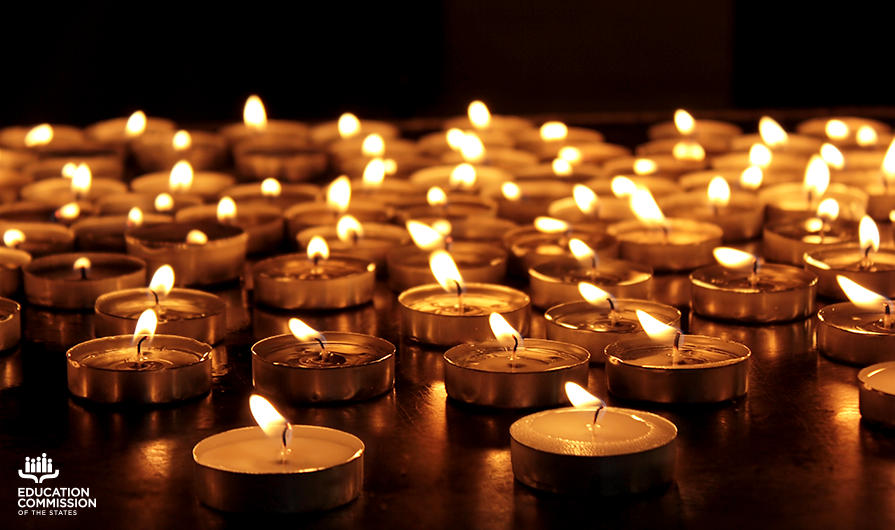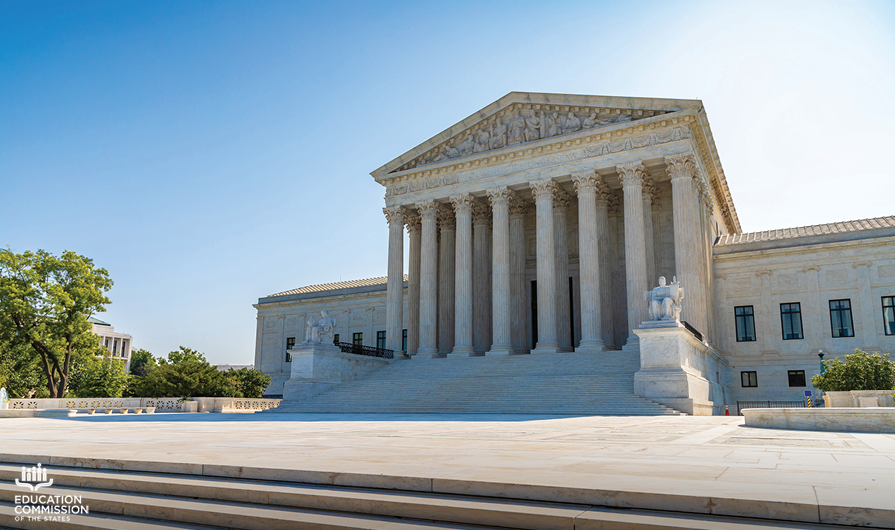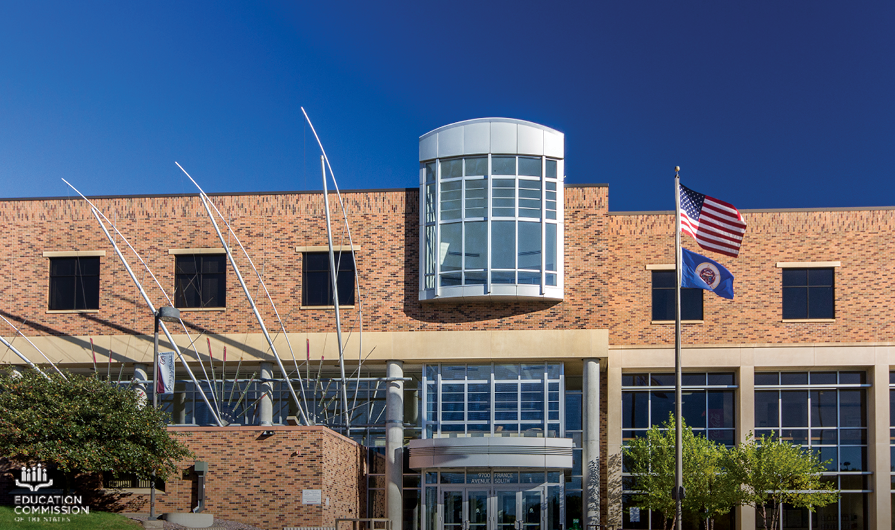The Days of Remembrance for the victims of the Holocaust were commemorated across the country during the week of April 4th this year. This commemoration, established by the U.S. Congress in 1978, is a time to reflect on the atrocities of the Holocaust and the Nazi murder of Jews, as well as many members of other targeted groups, including Roma, Jehovah’s Witnesses, Communists and LGBTQI+ individuals.
A recent national survey found that 63% of adults aged 18 to 39 didn’t know that 6 million Jews were killed in the Holocaust, and 49% have seen Holocaust denial or distortion posts online (see state-by-state results here). Many state legislatures have taken action to require Holocaust education in schools, and according to the United States Holocaust Memorial Museum, at least 17 states require Holocaust education as part of their secondary school curriculum.
Other states have legislation encouraging Holocaust education or have convened commissions or councils to develop or assist in the development of Holocaust education and programs. Alabama, Georgia, Mississippi, Missouri, Nevada, North Carolina, South Carolina, Tennessee, Virginia and West Virginia are among the states with such councils or commissions. Here, we present examples of states that have passed legislation on Holocaust education and examples of legislation from the current session.
Existing State Requirements
Existing legislation in states may require or encourage instruction on the Holocaust. Some current legislation requires collaboration with outside organizations to help develop materials or best practices for instruction. Other state legislation requires reporting, such as Delaware and Florida, which require schools or districts to provide the department of education with information regarding how requirements were met or provide evidence that they were met.
Colorado passed H.B. 1336 in 2020, which requires the state board to adopt standards related to Holocaust and genocide studies on or before July 1, 2021, and requires each school district board of education and charter school to incorporate the standards into an existing course. This is currently a condition of high school graduation for school years beginning on or after July 1, 2023. The bill further requires the department of education to create and maintain a publicly available resource bank of materials pertaining to Holocaust and genocide courses and for programs to be available for access by public schools no later than July 1, 2021.
Washington, on the other hand, encourages Holocaust education through S.B. 5612, enacted in 2019. The bill strongly encourages middle schools, junior high schools and high schools to include instruction on the events of the Holocaust period and requires the office of public instruction to collaborate with an expert Washington nonprofit organization to develop best practices for instruction and to help train and support teachers in Holocaust education instruction and other acts of genocide.
Recently Introduced Legislation Highlighting Holocaust Education
So far in 2021, at least 9 bills have been introduced on Holocaust education in schools across eight states: Arkansas, California, Florida, North Carolina, Nevada, New York, Wisconsin and West Virginia.
Pending legislation in Wisconsin, A.B. 55/S.B. 69 would require that students be instructed on the Holocaust and other genocides at least once in grades five to eight and at least once in grades nine to twelve. In addition to Holocaust instruction, legislation introduced in California, Nevada, New York and West Virginia address instruction on other genocides. Designation of an event as “genocide” can be a politically contentious declaration, so included events vary across the states.
Additional state legislation would require the involvement of community organizations and individuals in Holocaust education. Florida* and Nevada have both introduced legislation that would require or encourage individuals and community organizations to get involved with Holocaust education in some capacity.
Some state policies regarding Holocaust education could create requirements for content that moves beyond the general study of historic events to make connections to broader issues in contemporary society like antisemitism and discrimination. For instance, North Carolina H.B. 69 would create a requirement that instruction on the Holocaust not only cover information on the events of the Holocaust but any standards, curriculum content, professional development or other materials developed regarding the Holocaust must utilize and define “antisemitism” and “Holocaust denial and distortion” in a manner consistent with definitions in the federal Never Again Education Act.
Arkansas S.B. 160 would create a requirement that Holocaust education not only be taught in all public schools beginning in the 2022-23 school year, but would also require these teachings to “develop a dialogue with students on the ramifications of bullying, bigotry, stereotyping, and discrimination” and to encourage “tolerance of diversity and reverence for human dignity for all citizens in a pluralistic society.”
As the nation moves beyond the Days of Remembrance, Education Commission of the States will continue to track state legislation on Holocaust education and instruction. To view all enacted and vetoed bills on the topic, visit our state policy tracking resource and stay tuned for more resources.
*This bill would also create these requirements for instruction on the history of African Americans. For more on recent state policy regarding Black history and curricula, see our Black History Beyond Black History Month post.















